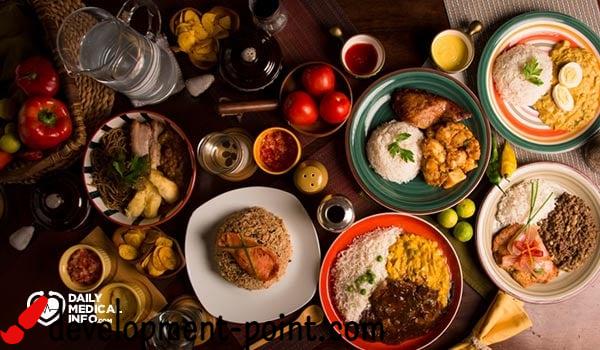What does a hiatal hernia patient eat?
A hernia occurs when the upper part of the stomach punctures the thoracic cavity through the opening of the diaphragm. Usually, disturbing symptoms do not appear with hernias for many, but some other cases may suffer from some symptoms, the most famous of which is esophageal reflux, which may cause a feeling of heartburn and discomfort after eating certain types of food.
Among the treatment methods for most cases of hiatal hernia is a change in lifestyle, taking antacid medications, and if symptoms worsen in advanced cases, the doctor may suggest a laparoscopic hiatal hernia operation.
The most important thing you can do is choose foods that are appropriate for your condition that do not increase reflux, and do not make the stomach secrete more digestive acids. In this article, we will know together what a hiatal hernia patient eats and what should not be eaten.
What does a hiatal hernia patient eat?
Doctors always recommend eating foods that are light on the stomach, non-acidic, and contain fiber, as they contribute to reducing the symptoms of GERD, and the answer to the question “What does a hiatal hernia patient eat?” In the following foods:
vegetables and fruits
- Non-acidic fruits such as bananas, apples, pears, and watermelon.
- Leafy vegetables such as lettuce, watercress, parsley and dill.
- potato.
- carrots.
protein sources
- Grilled or boiled chicken.
- fish.
- Tuna without oil.
Other food and drinks
- Oats.
- Nuts.
- Plant-based milk such as coconut milk or soy milk.
- Green tea.
In addition to many other foods that do not irritate stomach acid, you can discuss with your doctor about eating these foods, and there are some exceptions for patients who suffer from allergies to certain types of foods, and remember, “The thing that exceeds its limit; turns against it.” Although they are permissible foods, this does not mean overeating them, so eat them in reasonable quantities.
Prohibited food for patients with hiatal hernia
Avoiding certain foods has a major role in the absence of symptoms that cause discomfort to patients and affect their daily activities, and there is a similarity between the forbidden food after the hernia operation and the prohibited foods for those who did not undergo the operation, and the doctor’s instructions must be followed, including the following:
- Fried foods such as potatoes, falafel, eggplant, peppers, chicken, fried meat and fish.
- Chocolate, and some types of oriental sweets.
- Tomatoes, and what is derived from them, such as sauce and juice.
- vinegar.
- Citrus fruits such as lemons, oranges, and tangerines.
- fatty foods.
- Onions and garlic.
- Hot and spicy foods.
- Caffeinated beverages such as tea and coffee.
- Soft drinks.
- Alcohols.
- Full-fat dairy.
In a Korean study that took place a few years ago, specifically in 2017, the effect of many foods on the exacerbation of GERD symptoms was observed in about 37% of the participants. Among the foods that were used in the study: bread, hot dogs, pizza, donuts, and rice cakes.
Important tips for cooking and eating
As we noticed in the previous paragraphs, some foodstuffs are repeated in prohibited foods and permitted foods, as the cooking method differs in making food prohibited or permitted in the case of a hiatal hernia, and the addition of spices plays a different role in this matter, and here are some tips for cooking what you desire without any Troubles:
- You can cook with healthy oils like olive oil and coconut oil.
- Eat foods rich in fiber.
- Always use fresh foods.
- Avoid adding too much seasoning while cooking.
General advice for a healthy diet
- Eat four to six small meals, rather than three large meals.
- Drink enough water per day, at least eight glasses.
- Chew food well.
- Try not to starve yourself severely, as severe hunger increases stomach acid.
- Do some exercise before eating meals.
Finally, following the diet prescribed by the doctor and avoiding prohibited foods, in addition to quitting smoking, and maintaining a healthy weight, will help you live a better life without any significant symptoms.

